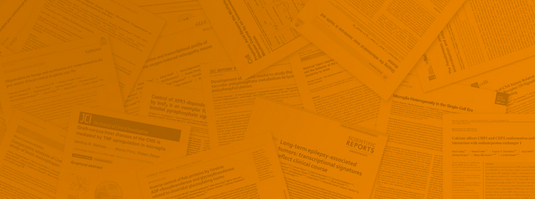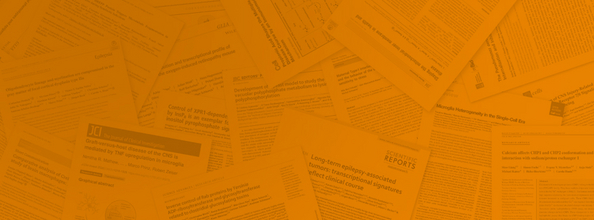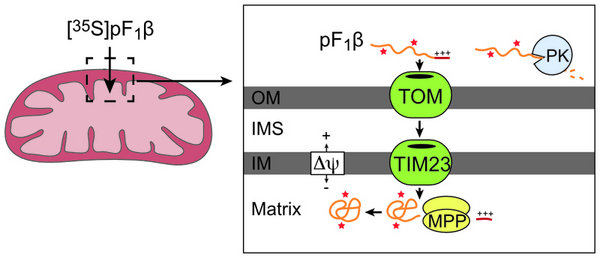Methods Cell Biol. 2020;155:45-79.


Studying protein import into mitochondria.
Methods Cell Biol. online article
Mitochondria are deeply integrated into crucial functions of eukaryotic cells, including ATP production via oxidative phosphorylation, biosynthesis of iron-sulfur clusters, amino acids, lipids and heme, signaling pathways and programmed cell death. The import of about 1,000 different proteins that are produced as precursors on cytosolic ribosomes is essential for mitochondrial functions and biogenesis. The translocase of the outer mitochondrial membrane (TOM) forms the entry gate for the vast majority of mitochondrial proteins. Research of the last years uncovered a complicated network of protein translocases and pathways that sort proteins into the mitochondrial subcompartments: outer and inner membranes, intermembrane space and matrix. In vitro import of a large number of different precursor proteins into mitochondria has been a pivotal experimental assay to identify these protein-sorting routes. This experimental set-up enables studies on the kinetics of protein transport into isolated mitochondria, on the processing of precursor proteins and on their assembly into functional protein machineries. In vitro protein import assays are widely used and are indispensable for research on mitochondrial protein biogenesis.




